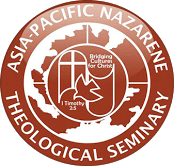- Resource Types
- Resource Languages
- Institutional Repository
 Visit the home page
Visit the home page
About Site Language
WHDL is viewable in multiple languages. Use the pull-down menu to select a language to view the site.
I changed my language, but I’m still seeing resources in the other languages?
If a resource or text has not been translated into your selected language, it will appear in the initially added language. We are always looking for help translating these resources. If you can help, contact us!
WHDL - 00020791


click to copy
Davis, P (2014). Open and Closed: A Wesleyan Reflection on Christian Narratives of love .
Davis, PhillipOpen and Closed: A Wesleyan Reflection on Christian Narratives of love . , 2014
Davis, PhillipOpen and Closed: A Wesleyan Reflection on Christian Narratives of love . , 2014
Davis, PhillipOpen and Closed: A Wesleyan Reflection on Christian Narratives of love . , 2014
This study attempts to present a reflection on love which is both plausible for the current postmodern context and faithful to its understanding within the Christian tradition. Such a reflection is required, since Christianity itself is called into question by a postmodern critique. That critique flows, in part, from misery experienced in the previous century – a time when millions died in wars or death camps, while others lived in police states. Nations came under the sway of ideological narratives promising a better future. But these ended violently: in barbed wire fences and smoking ovens, in kangaroo courts and gulags, in sweat shops and economic collapse. Resistance against modernity’s vision(s) of utopia began among philosophers and artists, eventually spreading throughout Western culture. The postmodern critique of “grand narratives” touches the Church as well, since the Christian story of love is seen as one more oppressive narrative. Theology must engage this critique, taking seriously the thoughts and fears expressed therein. Our aim, therefore, is to propose a model for thinking love within a postmodern context, which draws inspiration for the Wesleyan theological tradition.
2016
1901
2004
n.d.
1899
1929
1944
2023
1945
1899
2013
2018